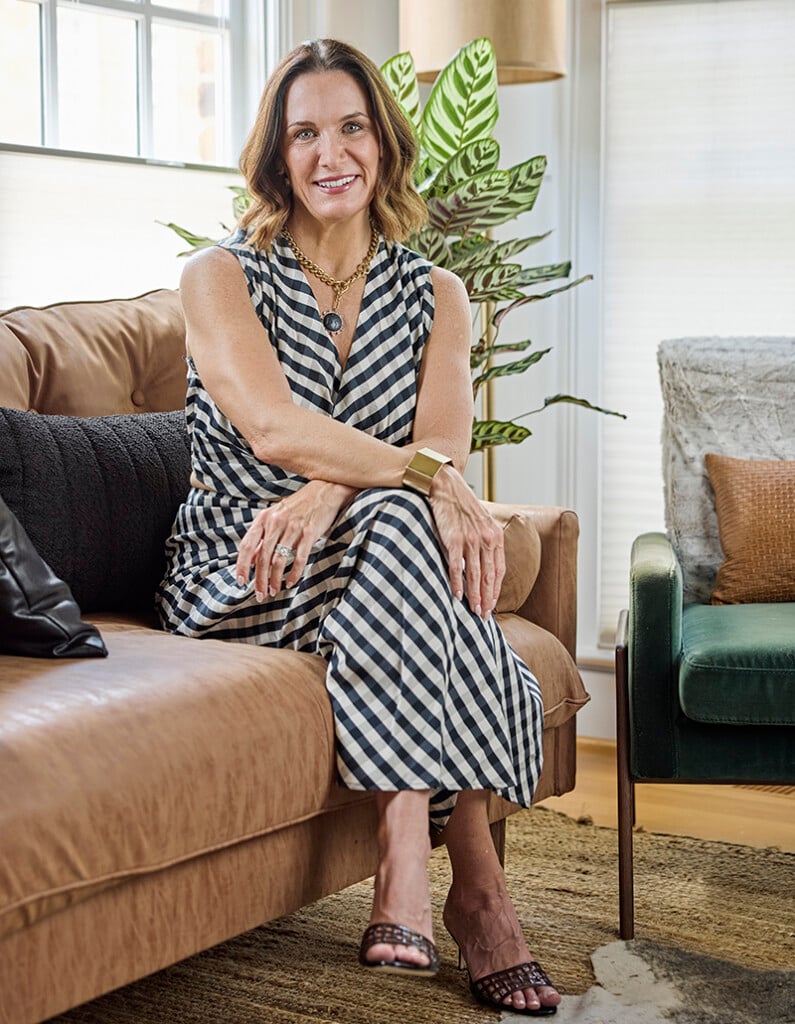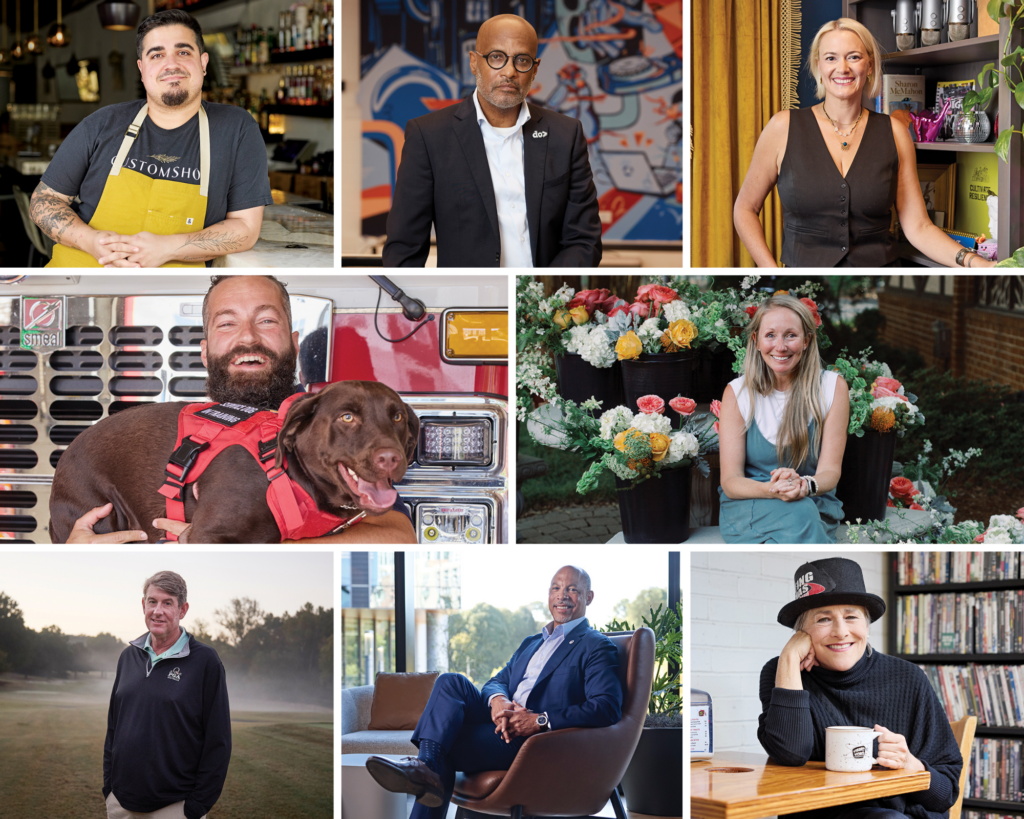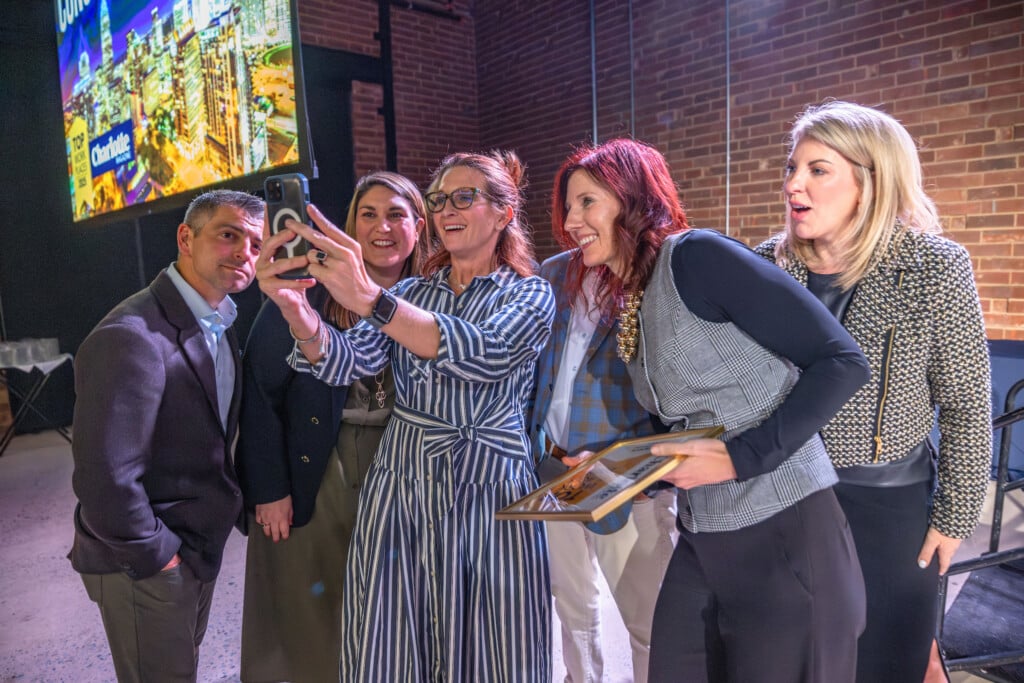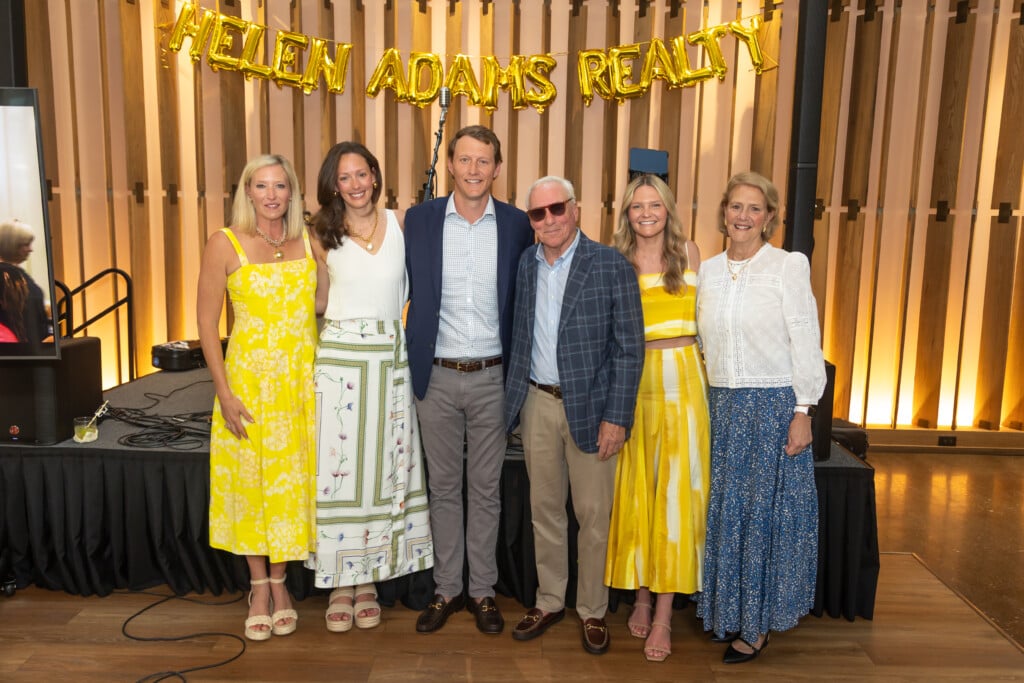Life Lessons With Erin Santos-Primis
Thirteen years after her daughter died of cancer, the Isabella Santos Foundation founder reflects on her nonprofit’s endurance—and her own

Erin Santos-Primis founded the Isabella Santos Foundation in Charlotte in 2007, the year her 2-year-old daughter, Isabella, was diagnosed with neuroblastoma, a nerve cell cancer. Isabella died at age 7, but ISF continues to fund research and provide support to families affected by pediatric cancer.
Today, Santos-Primis, 48, is in her 18th year as ISF’s president and executive director, and her organization has raised more than $16 million. She says the foundation and her life are in the best places they’ve ever been. On average, founder-led nonprofits like ISF last only seven years. How has hers survived when so many others don’t?
Santos-Primis cites several factors. While many founders burn out after a few years, Santos-Primis says she cannot and will not do anything else. Research shows that passion for and connection to the founder’s story often wanes around that seven-year mark. But when Santos-Primis saw support for ISF trending downward after its first decade, she removed her family’s story from the spotlight and replaced it with those of other Charlotte-area families with more recent diagnoses. That reignited support. Early this year, she launched the Torch (Transformational Outcomes for Rare Cancer Heroes) Initiative to extend ISF’s funds and support beyond Charlotte and Levine Children’s Hospital. ISF continues to work with Levine, but it’s added Novant and hospitals in the Triangle, Asheville, Charleston, and beyond to its roster. When ISF announced the Initiative at a gala in February, donors gave $850,000, the most it’s ever raised at a single event.
“Especially as we continue to get bigger,” Santos-Primis says, “it’d be irresponsible to continue to just make one place better.”
Here’s Santos-Primis in her own words, edited for length and clarity.
I’m from a small town called Urbana, between Columbus and Dayton in Ohio. I studied business at Ohio University. After graduation, I moved to Charlotte because it was a big banking town. I got a job at Lending Tree, and that’s where I met my first husband, Stuart, my kids’ father. I worked there for six years as a project manager, in between business and technology. I had Isabella while there. At the time, it was the dot-com startup, and people were, like, sleeping there overnight and working on things. And it was just the best, coolest job ever.
I actually knew Isabella longer as a kid who had cancer than as a child who didn’t. I mean, she was 2½ when she was diagnosed, so that’s when most kids kind of develop into who they are. And she was so cool and just really insane. She had a horrible singing voice and was a horrible dancer with a horrible sense of fashion. But she didn’t care. She was fearless. She was an amazing artist. She was so cuddly and loved everybody. People to this day tell me about how she touched them. She may not have remembered them, but they remember her.
I get a lot of calls from people who’ve lost a kid and want to start foundations. I tell them, “Take a minute before you do this because—not that great things haven’t come from this, but this tragedy will be something you’ll be known for for the rest of your life.” It’s what my kids are known for, my new husband. And that is a huge thing that I don’t think people grasp. I definitely didn’t.
But I think of a lot of people do it because they want to keep someone’s memory alive, which I completely understand. It’s why I’m so hesitant to ever shut this down, because I feel like if I ever do, she dies all over again. I love the fact that I’m able to say her name all day, every day. There’s strength in that. That’s what a foundation brings to anyone who starts one—they’re still allowed to talk about this person that they lost in a safe space and not be judged for it because something good is coming from it. But it kind of floods the market.
I wish some people would kind of start to work together and barnacle onto what other people are doing. But people are hesitant to drop the name of their loved one, which I understand, too. These foundations are attempts to help people live on forever.
I look back, and I think, I cannot believe I did this. Isabella was recently buried, and I was having events where I was getting up and talking. I look back at some of the pictures and videos, and I feel so bad for the people in the audience watching me because it was so real and awful, and I cannot believe that I grieved like that in front of people. But I also think that’s why the foundation took off in the way that it did.
ISF was therapy for me. I’ve never been to therapy in my life. I never went on antidepressants, not that there’s anything wrong with that. But it was how I grieved—the entire process of it. I don’t know who I would be if I didn’t do all this.
This kind of thing does prevent you from moving on with your life. It became kind of the rock that all these other changes in my life over the years have come up against.
For the first 10 years of the foundation—five when Isabella was here and five after—I think most people were giving because of her and our family. But once we hit that 10-year mark, we realized that we had to introduce other people. Introducing new families was a big key to ISF’s longevity. But there are certain times of year, whether Isabella’s birthday or her passing day, that we kind of bring her back and explain to people why it was all created.
ISF has a longstanding relationship with Levine Children’s Hospital. We’re so proud of the work we’ve done with them and to make it so that kids don’t have to leave Charlotte to get the best treatment like we had to do. But we’ve hit the point where I’m afraid the next thing they’re going to ask us to do is build a building (laughs), and I don’t want to do that.
We also started to see that there are other hospitals in our area that don’t have an ISF. We went to Asheville after Hurricane Helene, and they were still boiling water in the oncology clinic and were just so appreciative that we brought $2,500 in gift cards. And I thought, We’re missing the boat here. There are hospitals out here that need things that are so doable. So that’s how we came up with the idea of spreading out the resources via the Torch Initiative.
We’re doing great things with Duke, Chapel Hill, Asheville, Charleston. We’ve taken Levine up to a high level, but now if we can start to pull some of these other hospitals up, too.
There are so many organizations out there that do so many great things for families and offer family services, toys, gift cards, and all that stuff. But my daughter did not survive because too many people were giving teddy bears. I need people to give to research. If a family needs something, please reach out to us, but if I were going through it, I would say, “Keep your teddy bear and give your money to neuroblastoma research.”
We’re funding a brain tumor study out of Chapel Hill and an osteosarcoma study out of Duke and Atlanta. We’re doing a neuroblastoma study out of Texas and working with the Medical University of South Carolina to provide fertility preservation for teens going through cancer treatment so that when they survive, they’re able to have children one day. We developed a scientific committee of doctors—from Stanford and all over the U.S.—who score studies we’re interested in and decide what is best to support.
We’ll always be a huge provider to Levine. We’ve started to work with Novant for the first time this year, which is crazy that we’ve been here for this long and never done anything for them. They asked for us to provide mental health support for kids and their families, as well as nutrition. We partnered with Carolina Farm Trust to bring in healthy, nutritious meals for the kids. Their clinic is across the street from the main hospital, so these families were ordering DoorDash or eating Oreos and Goldfish while they’re getting chemotherapy.
There are just obvious yeses, like kids needing nutritious meals during chemo. Decisions about how and where we spend are half-heart, half-brain.
If we were going to create a new drug from scratch, it’d cost billions of dollars. But that food program only cost $40,000. The brain tumor study in Chapel Hill was $175,000. We should be able to raise that so quick. Being able to preserve a girl’s fertility is $15,000. That’s nothing, for a girl to be able to have a baby. Those things just feel so attainable to me.
Several times along this 18-year path, I’ve considered walking away. But then when you hear stories of families, or you have a mom reach out to you—I just think that my personal journey is second compared to some of the stuff we’re doing.
Did the most horrible thing in the world happen to me, and do I wish every day that it hadn’t? Yes. But so many amazing things have happened, too, not only to me and my family but for our local hospital and other families and now hospitals in other places. Isabella’s life not being spared has created this ripple effect of so much good that I can’t ever walk away from it now.
I have days where I want to just go work at Paper Skyscraper or take a year off, but I know that that is so selfish because think of what we could do during that time.
Not to get political, but the National Institute of Health funding getting slashed—we meet with these doctors who are like, “You don’t understand what this is going to do to us and how integral someone like ISF could be to keeping the lights on.” Some of these people have ideas that could change the course of cancer forever. It’s really scary, and, like, how is this now my responsibility? But I’m even more excited now. Hospitals need us, and there’s so much opportunity out there.
Last year, I slid into the DMs of the guys from Southern Charm—I don’t know what I was thinking—and said, “I have this foundation, and we’re trying to expand and help your hospital in Charleston.” The majority of Charleston residents aren’t full-time, so they have trouble building a groundswell of support for their local hospital. So, Shep Rose and Austen Kroll, who’s from Charlotte, are coming in October for an event at The Revelry. Half of the money we raise is going to go to the fertility preservation project in Charleston and the other half to it here in Charlotte.
We’re trying to reteach our donors that if you can help a cancer survivor, I don’t care if she’s in Idaho. That shouldn’t matter to our donors, and, luckily, we’re finding out it doesn’t.
At 48, life is better than I ever thought it could be. When Isabella passed away, I never thought I’d ever be able to say that. I know a mom who just lost her child two weeks ago, and it’s too early to say to her, but I just think, You don’t know it yet, but you could still have a really amazing life, and you can’t feel bad for having that. That’s my life lesson: The best is yet to come.






